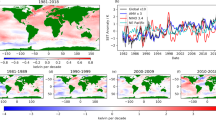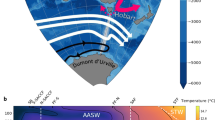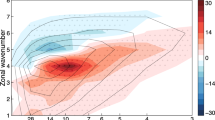Abstract
THE investigations conducted by Hann and others have yielded a complete explanation of the physical processes involved in the production of the Föhn, Chinook, and similar winds met with in various parts of the world—a warm, moist air current depositing its moisture and decreasing in temperature while ascending the windward slope of a mountain range, then on the lee side descending and becoming intensely dry and increasing greatly in temperature as a consequence of the increase of pressure during the descent. But in the British Isles, and no doubt in other regions similarly situated in the neighbourhood of a relatively warm ocean current, there are occasions—and they are by no means uncommon—when a mild, soft sea breeze produces some curious temperature anomalies, which, so far as I am aware, have not attracted the attention of meteorologists and physicists, and, consequently, are thus far without any adequate explanation. They visit this country and western Europe in all seasons, but they are more noticeable in the winter half of the year, because the change of temperature is then relatively much greater than in the normally warm seasons.
This is a preview of subscription content, access via your institution
Access options
Subscribe to this journal
Receive 51 print issues and online access
$199.00 per year
only $3.90 per issue
Buy this article
- Purchase on Springer Link
- Instant access to full article PDF
Prices may be subject to local taxes which are calculated during checkout
Similar content being viewed by others
Author information
Authors and Affiliations
Rights and permissions
About this article
Cite this article
HARRIES, H. Some Temperature Anomalies. Nature 102, 364–365 (1919). https://doi.org/10.1038/102364a0
Issue Date:
DOI: https://doi.org/10.1038/102364a0
Comments
By submitting a comment you agree to abide by our Terms and Community Guidelines. If you find something abusive or that does not comply with our terms or guidelines please flag it as inappropriate.



